|
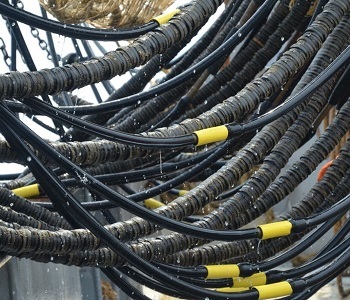
The French NGO Bloom has described the prohibition of electric fishing as a 'victory', although it regrets that it has been applied since 2021.
EU will totally ban 'electric fishing' from 2021
 EUROPEAN UNION EUROPEAN UNION
Thursday, February 14, 2019, 23:50 (GMT + 9)
The European Parliament (EP) and European Union (UE) member states reached an agreement to fully ban electric fishing in all waters, including those outside the EU, by 30 June 2021.
This controversial way of fishing consists of sending electric signals to stun and startle fish away from the seabed before scooping them up in the nets.
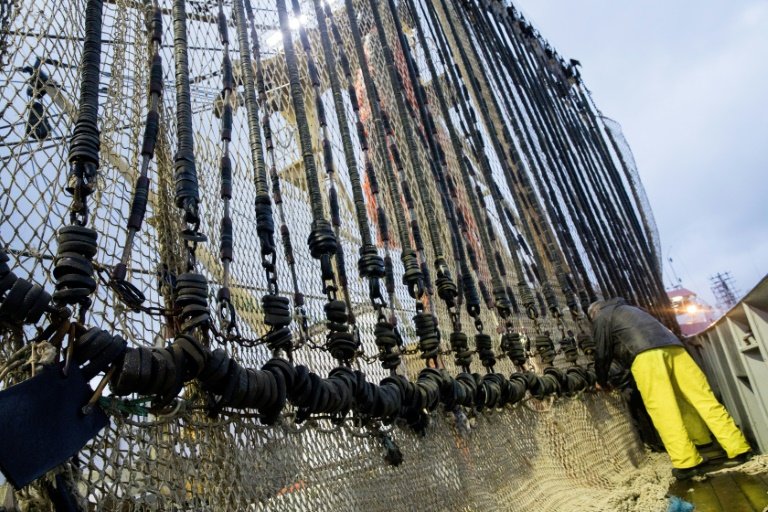
The agreement reached on 13 February is part of the reform of the Technical Measures Regulation. The new framework law will simplify the current set of 31 regulations on fishing gear and methods allowed within the EU waters, on the minimum size of fish to be caught, as well as on restricting fishing activities in certain areas or during certain periods.
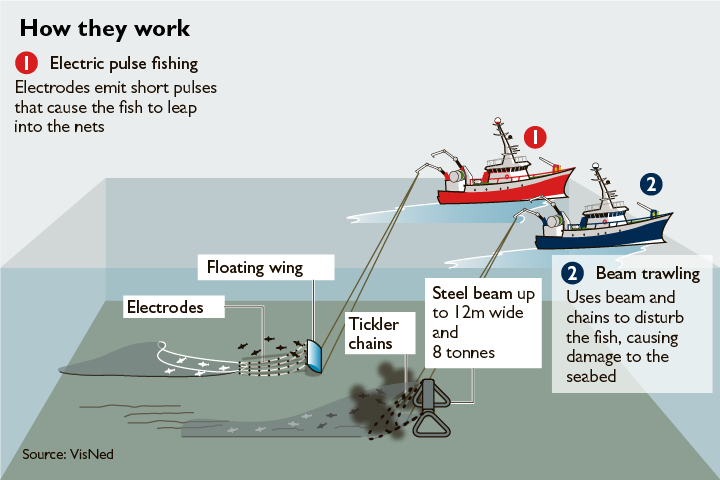
The deal enables EU member states to immediately prohibit or restrict the use of pulse fishing within their coastal waters, ensuring a phase-out period to allow time for the sector to adapt.
The technique will be prohibited after the transitional period but that the ban “does not impede much-needed innovation” in the fishing sector, according to what the Parliament rapporteur on the file, Spanish MEP Gabriel Mato, said.
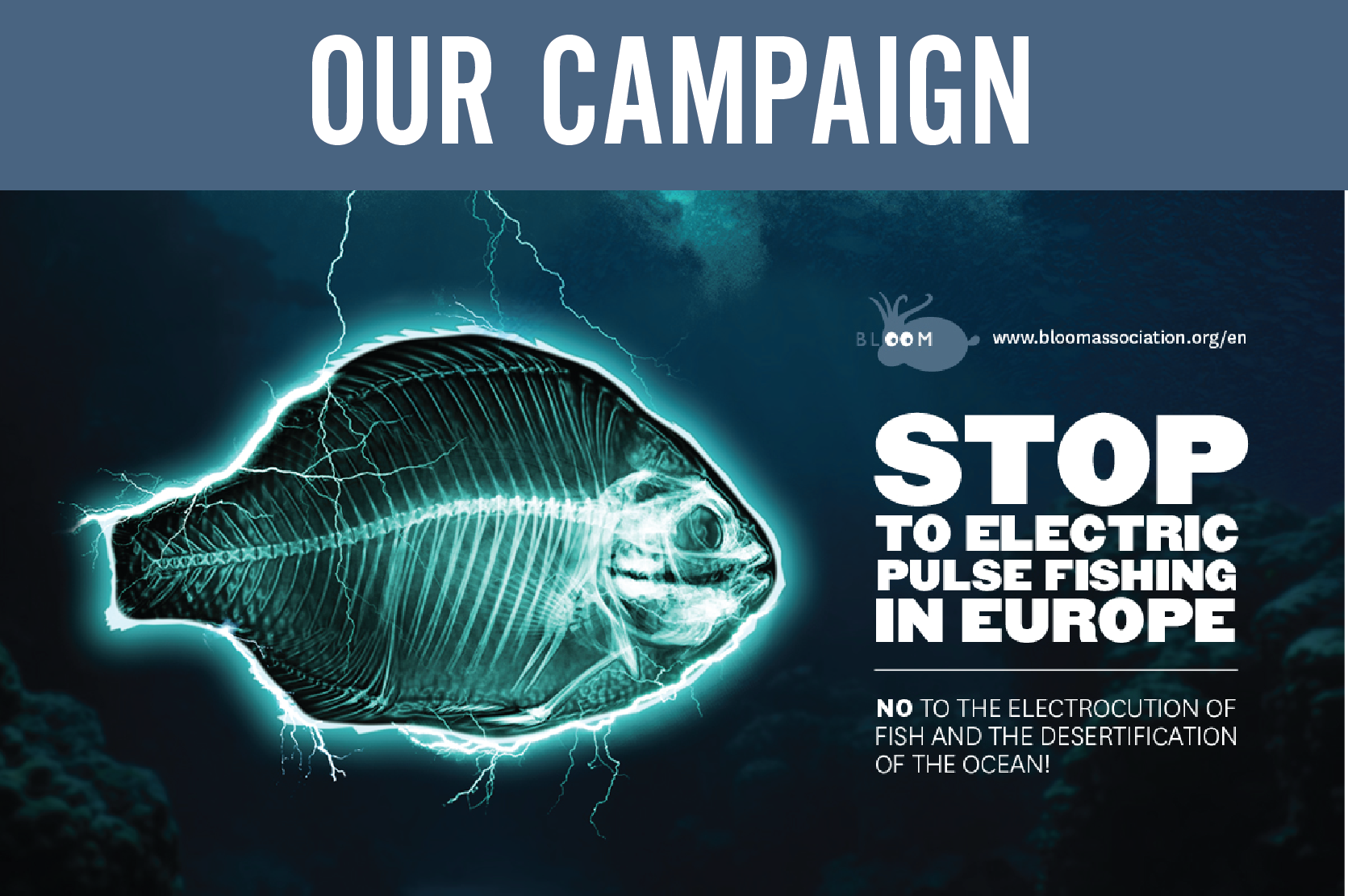
BLOOM launched a petition against electric pulse fishing before the PECH Committee vote of the Parliament (held on 21 November 2017) which was going to decide whether or not MEPs agreed to consider electric pulse fishing a potentially “conventional” fishing method.
"The new technical conservation measures present an important step forward in delivering on a concrete EU commitment to a sustainable fishing sector and the protection of the marine environment," said EU’s fisheries Commissioner Karmenu Vella.(2).png)
Catches with pulse trawling were officially banned in 1998, but a system of derogations set up in 2006 has allowed the practice to continue.
Opponents explained that the technique has negative effects on juveniles and eggs, and also damages marine wildlife.
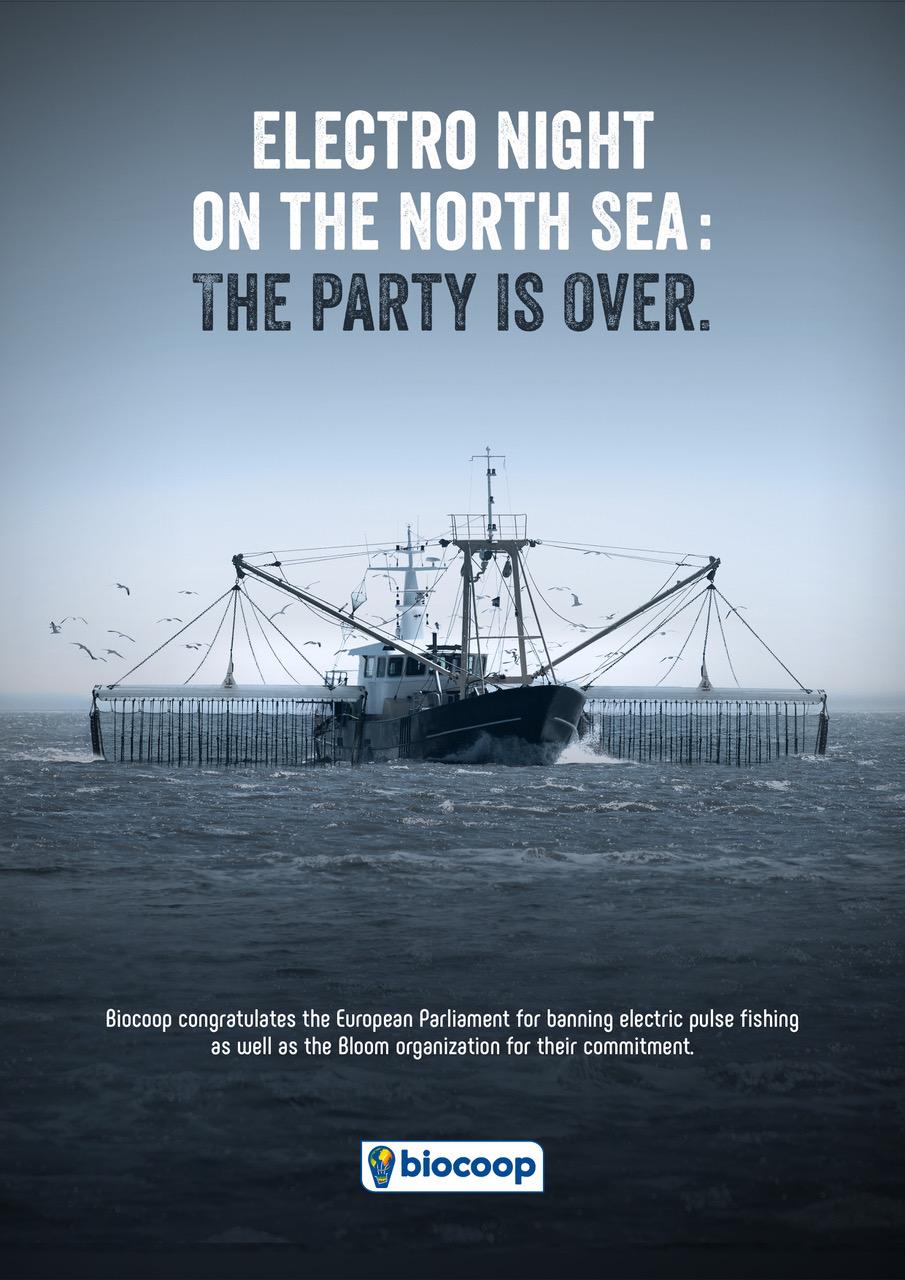
During the negotiations, a coalition of NGOs and fishing associations, led by French group Bloom, campaigned against pulse trawling. They asked the European Anti-Fraud Office to investigate whether the Netherlands committed fraud in its promotion of pulse fishing granting a substantial amount of public funds.
 “Finally! It took us over two years of campaigning, two formal complaints to the European Commission, a request to open a European investigation for fraud, a referral to the European Ombudsman, hundreds of meetings with Member States representatives and Parliamentarians in Brussels to obtain this full ban on electric fishing,” said Mathieu Colléter, in charge of Bloom’s institutional relations, who closely followed the electric fishing dossier in Brussels. “Finally! It took us over two years of campaigning, two formal complaints to the European Commission, a request to open a European investigation for fraud, a referral to the European Ombudsman, hundreds of meetings with Member States representatives and Parliamentarians in Brussels to obtain this full ban on electric fishing,” said Mathieu Colléter, in charge of Bloom’s institutional relations, who closely followed the electric fishing dossier in Brussels.
Brussels´decision to gradually prohibit the electric fishing, until reaching its total prohibition, was very badly received by the Dutch fishermen.
"Lies and emotion have beaten science," fishermen’s organisations said after the vote. "The European Council, the European Commission and the European Parliament have been misled by the lies and emotional campaign fought by French environmental organisation Bloom."
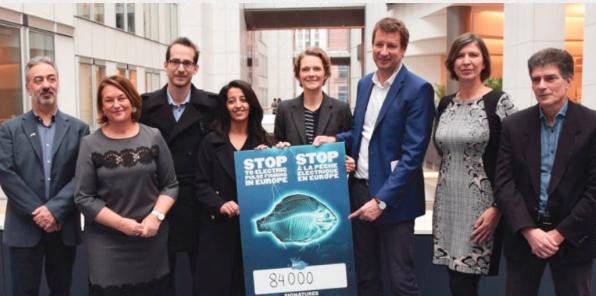
BLOOM delivers its petition to their champion MEPs against electric pulse fishing. From left to right: Marco Affronte (Greens, Italy), Nathalie Griesbeck (ALDE, France), Frédéric Le Manach (BLOOM), Karima Delli (Greens, France), Claire Nouvian (BLOOM), Yannick Jadot (Greens, France), Anja Hazekamp (GUE, Netherlands) & Pascal Durand (Greens, France).
In total, 42 Dutch trawlers will have to stop pulse fishing this year and 42 can continue until 2021. The agreement also states that six trawlers can continue to use the technique for research purposes.
Dutch farm minister Carola Schouten said the compromise was "the best" that could be won in the negotiations. It is, she said, a dark day for the Dutch fishing industry which had been banned from a "sustainable and innovative" way of fishing.
editorial@seafood.media
www.seafood.media
|



